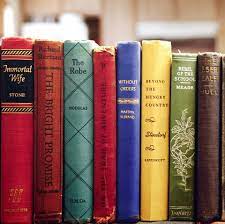Thanks to Carl Hiaasen for discovering for me “Money” via the WSJ book-club. It’s such a pleasure to read a book where the language is not just a vehicle for the narrative – it’s a sheer source of aesthetic pleasure. It clicks so perfectly with the character it portrays. The novel’s main character is on an nightmarish rambling spree in search of himself. His hilarious monologue draws a satirical self-deprecating portrait of himself, the protagonist, and his surroundings. Still, the novel is not a pure satire. It is too mainstream in terms of plot, to qualify for this. A true satire would be totally unforgiving to its subjects (the way Gogol is). Amis’ main character is quite sympathetic and and on top of this — looking for redemption. The whole line of Self trying to win Martina’s love, and become “good” and “normal” is too sweet and romantic – it spoils what could have bee a true cynical work of art where nobody is spared and nobody is redeemable.
Still, the writer is at his best here. Quoting pieces of the book would not do it justice still I am tempted…:
…I am not allergic to the twentieth century. I am addicted to the twentieth century…
…Cold out there.When it’s cold. That’s when you really feel your money…
…the whole show has the suspended air and sickly texture of treated film, that funeral-parlor glow – numb, tranced, and shiny, like a corpse….
…his Latin rug sweats with vitamins…
[this woman].. has a wraparound mouth…
…My life was a joke.My death will be serious.That must be why I am so afraid….
…My theory is – we don’t really go that far into other people, even when we think we do.We hardly ever go in and bring them out. We just stand at the jaws of the cave, and strike a match, and quickly ask if anybody’s there.
…At sickening speed I have roared and clattered, I have rocketed through my time, breaking all the limits, time limits, speed limits, city limits, jumping lights and cutting corners, guzzling gas and burning rubber, staring through the foul screen with my fist on the horn. I am that fleeting train that goes screaming past you in the night. Though travelling nowhere I have hurtled with blind purpose to the very end of my time. I want to slow down now and check the scenery, and put in a stop or two. I want some semi-colons…
Pleasure to read when phrases create a short-circuit between meaning and wit and brevity+complexity of expression.
